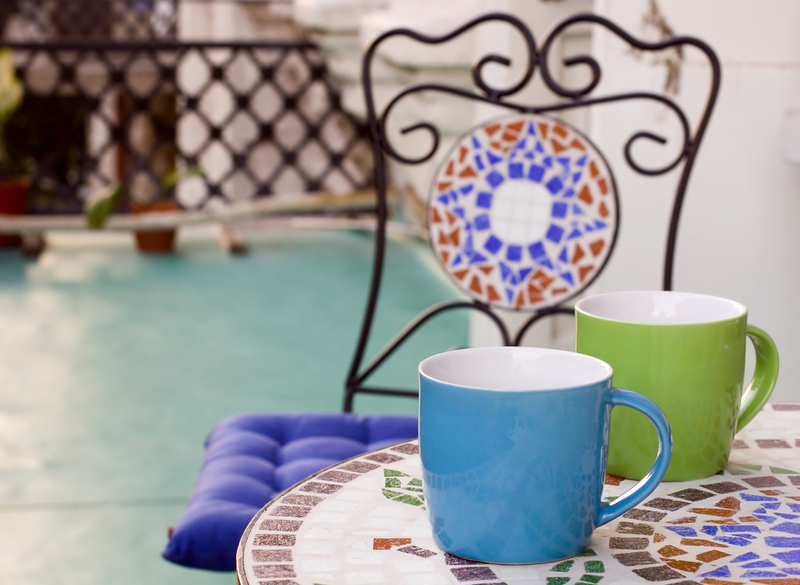Smart Plant Pot Disposal Alternatives: Eco-Friendly Ways to Dispose of and Reuse Plant Pots
Are you facing a growing pile of old plant containers, plastic planters, and ceramic pots in your backyard or garden shed? Plant pot disposal alternatives can be more sustainable than simply sending these containers to the landfill. This comprehensive guide explores innovative, smart plant pot disposal alternatives that every eco-conscious gardener and homeowner should consider. Learn how to reduce waste and make better choices for the planet with these eco-friendly plant pot disposal tips!

Why Responsible Plant Pot Disposal Matters
Most plant pots--whether plastic, clay, or ceramic--aren't biodegradable and often crowd landfills, taking hundreds of years to decompose. In particular, plastic plant pots pose significant environmental threats, from microplastic pollution to wildlife hazards. Practicing sustainable plant pot disposal alternatives helps reduce waste, cut down on resource consumption, and supports community initiatives.
- Minimize landfill waste: Landfilled pots contribute to environmental pollution and take up precious space.
- Support recycling initiatives: Proper disposal feeds the supply chain for recycled plastic and other reclaimed materials.
- Protect biodiversity: Responsible plant pot disposal reduces plastic leakage into natural habitats.
What Types of Plant Pots Need Special Disposal?
Before picking a disposal method, it's helpful to recognize the main types of plant containers and their material-specific disposal needs:
- Plastic pots: The most common and least biodegradable.
- Terracotta/clay pots: Natural but may not decompose easily if glazed or painted.
- Ceramic pots: Often durable, but glazed ceramics rarely compost or recycle easily.
- Biodegradable pots: Made from coir, peat, or pulp--often compostable.
- Metal or fiberglass pots: Require special recycling processes.
Knowing what kind of pot you have is the first step toward an eco-smart disposal decision.
Top Smart Plant Pot Disposal Alternatives
1. Plant Pot Recycling Programs
A growing number of local garden centers and nurseries offer plastic plant pot recycling drop-off services. These facilities collect old pots--usually made from #5 or #6 plastics--and send them to specialized recyclers who process and repurpose them into new garden supplies.
- Check with chains and independents: Major retailers like Lowe's, Home Depot, and local garden shops may participate.
- Clean your pots first: Remove soil, labels, and debris to help recyclers process material efficiently.
- Follow guidelines: Not all plastic types or colors may be accepted. Confirm what your program allows.
Pro Tip: If you don't see a drop-off bin, ask your local garden center if they'll collect pots behind the counter or organize a community collection day!
2. Creative Plant Pot Repurposing & Upcycling
Turn used containers into new treasures with a creative twist! Repurposing is one of the greener smart plant pot disposal alternatives. Here are some top ideas:
- DIY garden markers: Break old ceramic or terra cotta pots and write plant names on shards for a rustic label set.
- Indoor organizers: Use small pots to hold pens, art supplies, or bathroom essentials.
- Outdoor decoration: Stack or paint old pots to create whimsical totems, fairy gardens, or even mini water features.
- Bird baths or feeders: Invert large pots or pair with saucers to invite wildlife to your garden.
Repurposing not only gives your old pots new life, but also sparks creativity and helps reduce the need for new products.
3. Donate or Swap Plant Pots
If your surplus planters are still in usable shape, give them a second chance with someone else! Tap into community networks:
- Community gardens: Many accept donations of clean, empty pots for reuse by local growers.
- Schools, non-profits, or daycare centers: These organizations may use pots for educational gardening projects.
- Online plant groups: Platforms like Facebook Marketplace, Freecycle, or local plant swaps are ideal for gifting or barter.
- Nurseries: Some nurseries gladly accept gently used pots to save on costs.
Tip: Donating plant pots saves resources for others and fosters a spirit of sharing in your community.
4. Transform with Art: Pottery and Mosaic Projects
Broken pots? Don't toss them--use them for mosaic projects or garden art. Smash old ceramics or terracotta into pieces and use them to decorate stepping stones, flowerbeds, or unique outdoor murals.
- Personalized stepping stones: Arrange colorful shards in concrete or mortar for lasting garden decor.
- Garden sculptures: Stack or assemble broken pieces into one-of-a-kind yard sculptures.
- Accent planters: Glue mosaic pieces to an existing pot to revive tired containers.
Artistic upcycling is a wonderful way to engage kids, personalize your green space, and reduce waste.
5. Composting Biodegradable Pots
Some plant pots are made from materials like coconut coir, peat, pressed paper, or other compostable fibers. These are specially designed to break down naturally in your compost pile.
- Check for compostability: Look for pots labeled specifically as compostable/biodegradable.
- Shred or break them up: Smaller pieces break down faster when mixed with other compost material.
- Mix evenly: Spread fibers throughout your compost to improve airflow and nutrient balance.
Important: Do not compost regular plastic, ceramic, or glazed pots--these do not break down and can harm your compost.
Additional Smart Plant Pot Disposal Alternatives
6. Municipal Waste or Hard-Plastic Recycling
Some local governments offer hard plastic recycling for large, bulky plastics--including certain plant containers. Check your city or county waste authority's website for special collection days or drop-off instructions.
- Identification codes: Most recyclable pots are marked with a resin identification code on the bottom (usually #2, #5, or #6).
- No soil or debris: Leftover dirt can contaminate recycling loads. Clean your pots beforehand.
Note: If curbside pickup is unavailable, ask about annual recycling events for oversized or unusual plastic items.
7. Return Programs with Plant Suppliers
Some plant nurseries and garden centers offer return incentives: bring back purchased pots for refilling or reuse and receive a discount or loyalty points. This "closed-loop" system keeps pots in use longer and reduces plastic demand.
- Ask about return policies: Some suppliers only accept pots from plants they sold.
- Container refills: Many shops will refill your existing pot with new plants or soil for a more sustainable purchase.
8. Eco-Friendly Plant Pot Brands
When buying new containers, choose sustainable, eco-friendly plant pots made from recycled plastics, bamboo fiber, rice husk, or other renewable materials. Many brands let you return old pots for recycling or composting.
- Recycled plastic pots: Made from post-consumer waste, these keep plastics in circulation rather than landfills.
- Compostable containers: Brands like CowPots, EcoForms, or Biodegradable Pots offer earth-friendly alternatives.
- Innovative materials: Look for pots utilizing mushroom mycelium, plant starch, sawdust, or even coffee grounds!
Support responsible producers and help close the waste loop every time you buy new plant pots.
Tips for Responsible Plant Pot Use & Disposal
- Buy less, choose wisely: Select long-lasting or compostable pots whenever possible.
- Maintain and repair: Clean, sanitize, and repair minor chips and cracks to prolong pot life.
- Share with friends: Pool resources in your gardening network to swap or share pots rather than buying new ones every season.
- Educate your community: Spread awareness about smart plant pot disposal alternatives through local groups or online forums.

Frequently Asked Questions: Smart Ways to Dispose of Plant Pots
Can I Place Old Plant Pots in My Household Recycling Bin?
Usually not. Most curbside recycling programs do not accept plastic plant pots or ceramic containers, due to contamination and plastic type limitations. Use special drop-off recycling programs instead.
Are Biodegradable Pots Always Compostable?
Not all "biodegradable" pots are alike. Check manufacturer instructions--peat, coir, and uncoated fiber pots generally compost well, but those containing plastic or chemical additives should not go in your compost pile.
What's the Best Option for Broken or Non-Recyclable Pots?
Upcycle them as material for garden paths, drainage, or yard art! As a last resort, check with your local waste authority about safe disposal or recycling drop-off centers for ceramics and hard plastics.
How Do I Clean Pots for Reuse or Donation?
Scrub away all soil and plant residue. For plastic and ceramic pots, soak in a bleach solution (9 parts water, 1 part bleach) for 10 minutes, then rinse and air-dry. This prevents plant disease transmission and keeps donations in top condition.
Conclusion: Making the Smart Choice with Plant Pot Disposal Alternatives
The rise of smarter, sustainable plant pot disposal alternatives makes it easier than ever to reduce your gardening footprint and support a healthier planet. From recycling and composting to creative upcycling and community sharing, there are eco-friendly options for every type of garden container. With a little planning and awareness, you can dispose of your plant pots responsibly or give them new life--and inspire others to follow your green lead!
Ready to declutter your garden space sustainably? Start with one of these smart plant pot disposal alternatives today to nurture both your garden and the earth!
- Recycle at local drop-off points.
- Repurpose with upcycling ideas.
- Donate for community gardening projects.
- Compost genuine biodegradable pots.
- Choose sustainable options when shopping for new plant pots.
Have your own innovative plant pot recycling tip? Share it with your gardening community and nurture a culture of sustainability together!